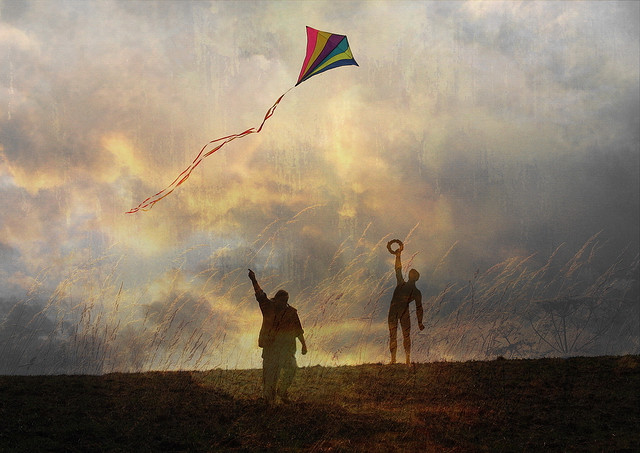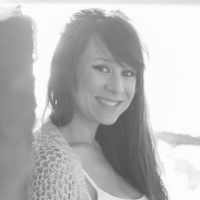I was walking to our family vehicle with my father. We were just leaving lunch or perhaps a coffee date, clearly as important as it was memorable.
We were arguing the importance of psychology, a course I had just enrolled in and was immediately infatuated with.
My father was not as pleased or impressed.
Psychology is a joke.
Depression is for the weak minded and weaker willed.
Therapists are for people who are crazy or broken or both.
Weak people blame their problems on some fictitious mental condition.
Mental health is nothing but an excuse for people to complain about their problems and disregard all accountability.
It went on. And on. And on.
And it was in that moment—as a wide-eyed 20 year old, excited about a college class and the potential to learn—that I was both acutely aware of my father’s inability to understand, and dangerously unaware of just how much I would need to be okay with his incompetence in the future.
Because just a few years later, it would be a therapist that would save my life.
I was recently graduated, ready to start a post-baccalaureate teaching program and hopelessly in love with my then live-in boyfriend. I was unapologetically happy and blissfully ignorant of the pain ahead—just like many people are before a life-altering, horrible happenstance dissects and destroys all that they know.
I was riding the road of a put-together adult, with windows down and the wind in my hair and my eyes closed as contentment washed over me. Then I hit a roadblock of such cataclysmic proportions, I didn’t know who I was or what I was or where I was.
I was pregnant, I was being cheated on, my father had put my mother in the hospital, my grandmother had been diagnosed with breast cancer and my beloved childhood dog had died.
In the span of a week.
One. Week.
And I was lost.
I couldn’t eat, but if I did I threw everything up.
I couldn’t sleep, but if I did it was because I had passed out from too many pills or booze or both.
I couldn’t speak, but if I did I would talk about everything except the things that hurt the most.
I couldn’t work, but if I did I showed up late and drunk and high and useless.
I couldn’t do school work, but if I did it was incomplete and half-assed and horribly inadequate.
And when a kind and intuitive professor suggested that I medically withdrawal from school, see a therapist and work on being okay before I consider anything else, it was my father’s nonchalant comments on mental health and therapy, that I heard over and over and over again.
Psychology is a joke.
Depression is for the weak minded and weaker willed.
Therapists are for people who are crazy or broken or both.
Weak people blame their problems on some fictitious mental condition.
Mental health is nothing but an excuse for people to complain about their problems and disregard all accountability.
It was those words that gave me pause. Frozen. Unable to pick up the phone and make an appointment and take the first step in mental health recovery.
They’re the same words so many people hear, in every corner of this country when discussing mental health.
They’re the words that continue to spread a fictitious stereotype and fallacious label of mental health that keep healing and wellness and understanding an arm’s reach away.
They’re the words that need to be met with truth and understanding and science, so that people won’t pause when they should act and freeze when they should function and pace in front of the phone when they should make that phone call.
Because life happens.
The unexpected happens.
The roadblocks we couldn’t have possibly envisioned come creeping up on us, destroying the otherwise smooth highway we thought we were on. We become derailed and the air we used to casually breathe becomes heavy and weighted and suffocating.
We need help, and admitting that assistance is required from time to time is not a weakness. It is not a sign of the broken or the way of the ill-equipped.
It is human.
I eventually made that phone call. With time and continued assurance and support, I scheduled that appointment and I sat across from that therapist. I listened to her, first with trepidation and concern and a kind of unwillingness that must have infuriated her.
But, over time, I finally learned.
I learned to put down the bottle and stop popping the pills and to feel what I was so afraid to feel, even if it hurt so deeply the marrow of my bones began to boil and curdle and burn.
I learned to forgive a boyfriend who couldn’t love me, a father who continually abused me, and myself—for allowing it all to happen.
I learned that people who think mental illness is a fraud for the fake or weak-minded, are people who don’t know what it is like to be pregnant and cheated on or have their father put their mother in the hospital or have their grandmother diagnosed with breast cancer or their beloved childhood dog die.
They don’t know know what it is like to have the easy feel impossible and the mundane feel monumental.
I learned that people who find comfort in calling people “crazy” or “insane” or “psycho,” are those who need to put others down to feel powerful and in control. The wellness of others only serves as a barometer for their own success or self-worth and, unfortunately, the downfall of those around them hoists them to a higher pedestal of misplaced self-righteousness.
In other words, I finally learned what that wide-eyed 20 year old was so excited to absorb in a college psychology class.
And most importantly, I learned that my father was wrong.
I learned that it is okay to ask for help and to admit that, sometimes, it can all be too heavy.
I learned that there’s power in numbers, and sometimes the best number is two. You, a therapist, and the possibility of letting someone else in.
Even if that someone is a stranger.
I learned that there’s power in changing the conversation and that even the smallest change can start in the most unexpected of places.
Like an office, shared by a patient and a client.
Or during a frustrating conversation between a father and his daughter.
Or here and now, while reading an article on how a therapist saved a young woman’s life.
Relephant Read:
Depression Defined my Life for 27 Years.
~
Author: Danielle Campoamor
Editor: Travis May
Photo: Flicrk/Hartwig HKD


 Share on bsky
Share on bsky





Read 2 comments and reply